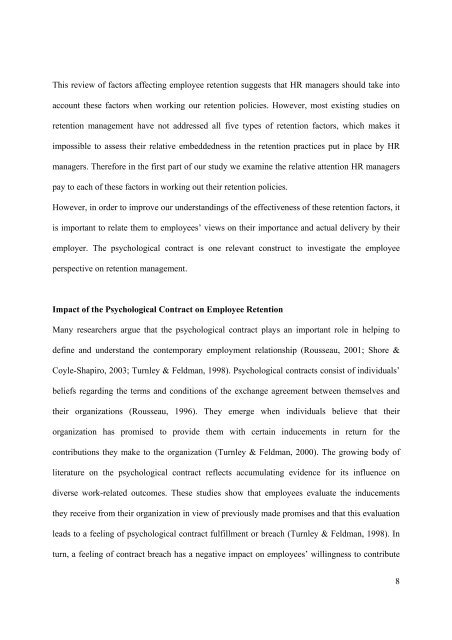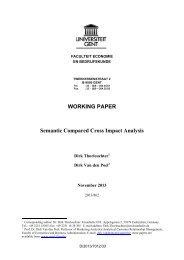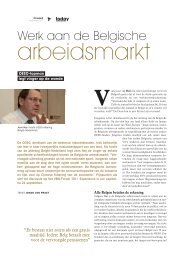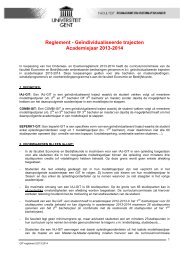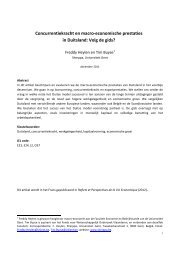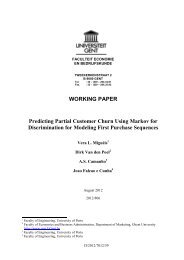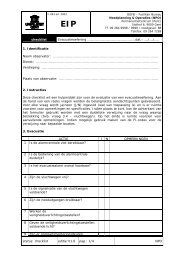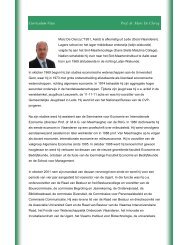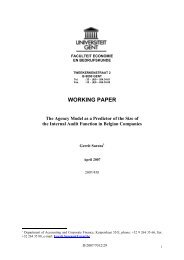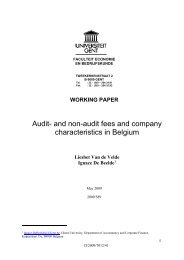WORKING PAPER - Faculteit Economie en Bedrijfskunde
WORKING PAPER - Faculteit Economie en Bedrijfskunde
WORKING PAPER - Faculteit Economie en Bedrijfskunde
Create successful ePaper yourself
Turn your PDF publications into a flip-book with our unique Google optimized e-Paper software.
This review of factors affecting employee ret<strong>en</strong>tion suggests that HR managers should take into<br />
account these factors wh<strong>en</strong> working our ret<strong>en</strong>tion policies. However, most existing studies on<br />
ret<strong>en</strong>tion managem<strong>en</strong>t have not addressed all five types of ret<strong>en</strong>tion factors, which makes it<br />
impossible to assess their relative embeddedness in the ret<strong>en</strong>tion practices put in place by HR<br />
managers. Therefore in the first part of our study we examine the relative att<strong>en</strong>tion HR managers<br />
pay to each of these factors in working out their ret<strong>en</strong>tion policies.<br />
However, in order to improve our understandings of the effectiv<strong>en</strong>ess of these ret<strong>en</strong>tion factors, it<br />
is important to relate them to employees’ views on their importance and actual delivery by their<br />
employer. The psychological contract is one relevant construct to investigate the employee<br />
perspective on ret<strong>en</strong>tion managem<strong>en</strong>t.<br />
Impact of the Psychological Contract on Employee Ret<strong>en</strong>tion<br />
Many researchers argue that the psychological contract plays an important role in helping to<br />
define and understand the contemporary employm<strong>en</strong>t relationship (Rousseau, 2001; Shore &<br />
Coyle-Shapiro, 2003; Turnley & Feldman, 1998). Psychological contracts consist of individuals’<br />
beliefs regarding the terms and conditions of the exchange agreem<strong>en</strong>t betwe<strong>en</strong> themselves and<br />
their organizations (Rousseau, 1996). They emerge wh<strong>en</strong> individuals believe that their<br />
organization has promised to provide them with certain inducem<strong>en</strong>ts in return for the<br />
contributions they make to the organization (Turnley & Feldman, 2000). The growing body of<br />
literature on the psychological contract reflects accumulating evid<strong>en</strong>ce for its influ<strong>en</strong>ce on<br />
diverse work-related outcomes. These studies show that employees evaluate the inducem<strong>en</strong>ts<br />
they receive from their organization in view of previously made promises and that this evaluation<br />
leads to a feeling of psychological contract fulfillm<strong>en</strong>t or breach (Turnley & Feldman, 1998). In<br />
turn, a feeling of contract breach has a negative impact on employees’ willingness to contribute<br />
8


